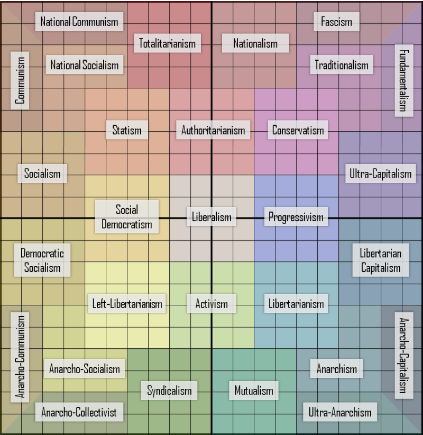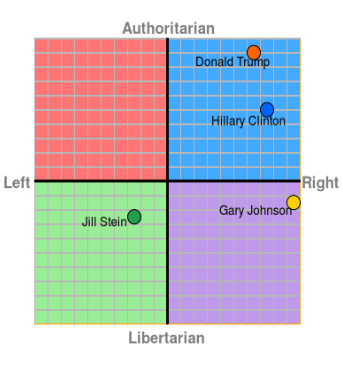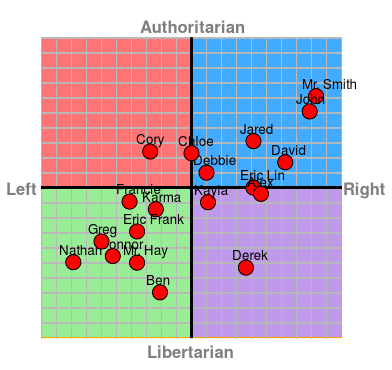The Political Compass of Weedsport

November 28, 2016
Like it or not, Politics have become the main center point of the year here at Weedsport. From talks of riots happening across the country of the election, the political fallout across the world over what people shall do with the U.S, or even just trying to figure out when that wall will be built. Either way, politics will be the main focal point of your life for at least the next couple of months until something else outrages people even more.
In light of the new goldmine that journalists have found themselves in for the next four or so years, we took the opportunity to conduct a survey called, “The Political Compass”. Which is a free online survey that will rank your answers to other ideologies around the world and presidential candidates from this year’s election, former, and countries abroad. Helping to either inform you of other political ideologies instead of just Liberal and Conservative – Democrat or Republican. It doesn’t even stop there and recommends books to read based on your quadrant as well as other world figures in history to compare yourself to.
The test has surprisingly accurate results and is ethically/intellectually difficult and thought provoking with the types of questions it asks. Upon discovering this a year or so ago, I never really found a time to use it in mass other than this month. So we set out to find volunteers to take it and graph their results, as well as ask some of them what the most important thing about politics to them is. And if our math terms are correct, we noticed two trends. One of them conglomerating along the moderate/liberal point, and one where a diagonal line is being drawn between Left-Libertarianism and Conservatism, of course with outliers. Here is what we found:
This might not mean much to the average viewer without a proper key, but the following diagram shows where each Weedsport student/staff member who took the test falls roughly with their ideology.
And this compass itself isn’t using american politics to determine where you fall but world ones. An example being that conservatives in the U.K would technically have the same ideas as our democrats in the U.S. Most American party politics will fall in the blue quadrant. And even Democrats and Republicans will fall under “conservative”.
After the test, we asked some of the participants the question of, “What’s the most important thing/concerns you the most about politics?” And here are some of the responses we received…
David Coyle: “Stagnation and halt of the U.S economy, as well as concern for foreign affairs and trade deals with other countries.”
Greg Reeves: “Environmental issues, we know in the past that fluctuations of global temperature from either natural or human activities had caused serious concerns for our future.”
Alex Rudick: “Awareness around the world, people are blindly following things and aren’t educated enough to make informed decisions.”
Cory Chandler: “The inequality amongst all the people in our current world.”
Connor VanEpps: “Lack of unity amongst the U.S and world, we’re a single species of all the same people but diverse in our own unique way. We should start acting as a single entity… we unite or we fall.”
Eric Frank: “I wanna die.”
Those who have taken it think their results are a little skewed but nothing too radically different or inaccurate from their rough approximations. Even with it’s accuracy it’s very hard to map people’s political beliefs on a standard four quadrant graph. But even still, if you want to see where you stand, the link has been provided. Use the coordinates you were given at the end of the test and use the comparison/key chart provided.
As always; special thanks to all the people who took their time to take this test and those who gaves quotes.
Link to Test:

